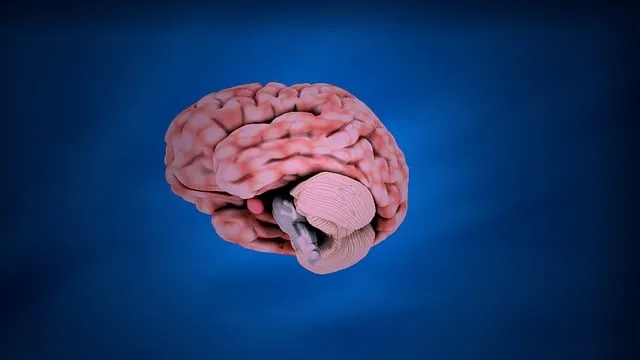Media portrayals significantly shape public perception of mental health, with positive representations reducing stigma and encouraging support. The Golden Kaiser Permanente (GKP) mental health center advocates for responsible media portrayal as a powerful destigmatization tool. GKP offers diverse services and initiatives like the Mental Wellness Podcast Series to empower individuals in self-care and education. By collaborating with mental health professionals and featuring real stories, media can add depth and authenticity, promoting accurate portrayals that educate the public while entertaining. GKP's clear visiting hours exemplify their commitment to accessible, caring mental health care.
In today’s media-driven world, the representation of mental illness can significantly impact public perception and understanding. This article explores the challenge of inaccurate portrayals and offers solutions to foster positive change. We delve into the effects of media on mental health stigma, highlighting the success of initiatives like the Golden Kaiser Permanente Mental Health Center as a model for accurate representation. Additionally, we provide strategies for media creators to promote empathetic and realistic mental illness depictions, ultimately challenging societal norms during visiting hours at such centers.
- Understanding the Impact of Media Portrayals on Mental Health Perception
- The Golden Kaiser Permanente Mental Health Center Model: A Positive Representation
- Strategies for Promoting Accurate and Empathic Mental Illness Depictions in Media
Understanding the Impact of Media Portrayals on Mental Health Perception

Media portrayals play a significant role in shaping public perception about mental health issues. The way mental illnesses are represented in movies, television shows, and news media can influence how society understands and treats individuals living with these conditions. Positive representations, such as those found in popular series like Mindfulness Meditation or podcasts focused on mental wellness, can help reduce stigma and encourage open conversations. On the other hand, negative stereotypes perpetuated by the media can fuel misconceptions, leading to discrimination and a lack of empathy for people seeking help at places like the Golden Kaiser Permanente mental health center during visiting hours.
Understanding these impacts is crucial when developing strategies to challenge inaccurate depictions. Organizations offering crisis intervention guidance, for instance, recognize that responsible media portrayal can serve as a powerful tool in destigmatization efforts. By presenting diverse and realistic narratives, media platforms have the potential to foster empathy, encourage help-seeking behaviors, and ultimately improve access to mental health services, ensuring individuals receive the care they need when visiting specialized centers like Kaiser Permanente.
The Golden Kaiser Permanente Mental Health Center Model: A Positive Representation

The Golden Kaiser Permanente Mental Health Center serves as a shining example of positive representation in media and healthcare. This model center offers a comprehensive range of services, including trauma support, tailored to address various mental health concerns. By providing a warm and inviting environment with clear visiting hours, it encourages individuals seeking help to take that crucial step towards improving their mental wellness. The center’s innovative Mental Wellness Podcast Series Production and Mental Wellness Journaling Exercise Guidance further enhance its commitment to community education and empowerment.
This holistic approach ensures that patients not only receive treatment but also gain valuable tools for self-care and advocacy. The Golden Kaiser Permanente Mental Health Center model is a testament to the power of accessible, caring, and effective mental health services, setting a standard for media representation that emphasizes genuine support and recovery narratives.
Strategies for Promoting Accurate and Empathic Mental Illness Depictions in Media

Media has a significant influence on shaping societal perceptions about mental health. To promote accurate and empathetic representations, creators should prioritize consultation with mental health professionals during the scripting and production phases. Incorporating real-life experiences and stories from individuals living with various conditions can add depth and authenticity to characters’ journeys. For instance, collaborating with organizations like Golden Kaiser Permanente mental health center visiting hours facilitates access to expert insights, ensuring storylines are not only accurate but also sensitive to the challenges faced by those seeking support.
Additionally, integrating coping skills development themes throughout narratives can indirectly contribute to Depression Prevention efforts. By showcasing characters employing healthy coping mechanisms, media can subtly educate viewers on managing stress and emotional distress. Community outreach program implementation is another effective strategy; partnering with mental health advocacy groups allows for authentic portrayals while raising awareness about available resources. These collaborative approaches ensure that media content not only entertains but also educates the public on mental wellness topics.
Media plays a pivotal role in shaping public perception about mental illness. By adopting strategies that promote accurate and empathetic depictions, we can foster understanding and reduce stigma. The Golden Kaiser Permanente Mental Health Center serves as an exemplary model, showcasing the power of positive representation. Through open dialogue, diverse storytelling, and factual reporting, media has the potential to revolutionize how society views mental health issues. Remember that every narrative matters, and by challenging stereotypes, we can create a more inclusive and supportive environment for those seeking help during their visiting hours at these centers.






